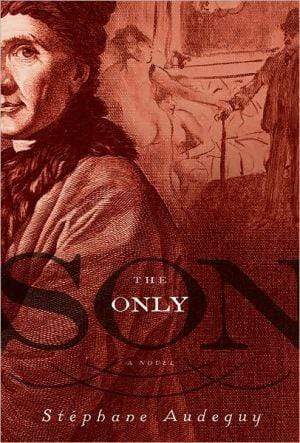1
/
of
1
Marissa's Books & Gifts, LLC
The Only Son
The Only Son
Regular price
$10.99 USD
Regular price
$30.99 USD
Sale price
$10.99 USD
Unit price
/
per
Couldn't load pickup availability
Jean-Jacques Rousseau mentions his older brother François only two times in his classic Confessions. In The Only Son, Stéphane Audeguy resurrects Rousseau's forgotten brother in a picaresque tale that brings to life the secret world of eighteenth-century Paris.Instructed at an early age in the philosophy of libertinage by a decadent aristocrat and later apprenticed to a clock maker, François is ultimately disowned by his family and flees to Paris's underworld. There he finds work in a brothel that caters to politicians and clergy and begins his personal study of the varieties of sexual desire—to its most arcane proclivities. Audeguy uses the libertine's progress to explore the interplay between the individual and society, much in the tradition of Jean-Jacques, but with a very different emphasis. Bold, erotic, and historically fascinating, The Only Son is, in many ways, the anti-Confessions—François' own, decidedly different, portrait of human nature.The New York Times - Judith WarnerIt's quite an achievement, this picaresque adventure, which reads without any false notes of anachronism and in John Cullen's translation harmonizes beautifully with the cadence of Jean-Jacques Rousseau's style. True to his brother's self-exhortation at the start of the Confessions to present himself "in all the integrity of nature," Francois sugarcoats nothing. There is no nicening-up of the world of the 18th-century libertine; for whatever titillation is on offer, Audeguy exacts payment, forcing readers to bear witness to sadism, the torture of animals and the sexual abuse of children. It is this refusal to allow Francois any shallow triumphs—beyond the structural triumph of his text's survival, hidden in the final resting place his brother desired on the peaceful island in Ermenonville—that makes this book something much more than a clever literary exercise. François may end his confessions with the adage "He laughs best who laughs last," but in the end it is the moralist Jean-Jacques who has the last word.
Share


